‘This is ecocide’: Ukrainians hope to rebuild greener country after Russian war ravages environment
“They want to destroy us fully, but they will not be able to,” Iryna Stavchuk, deputy minister of environmental protection said of Russia
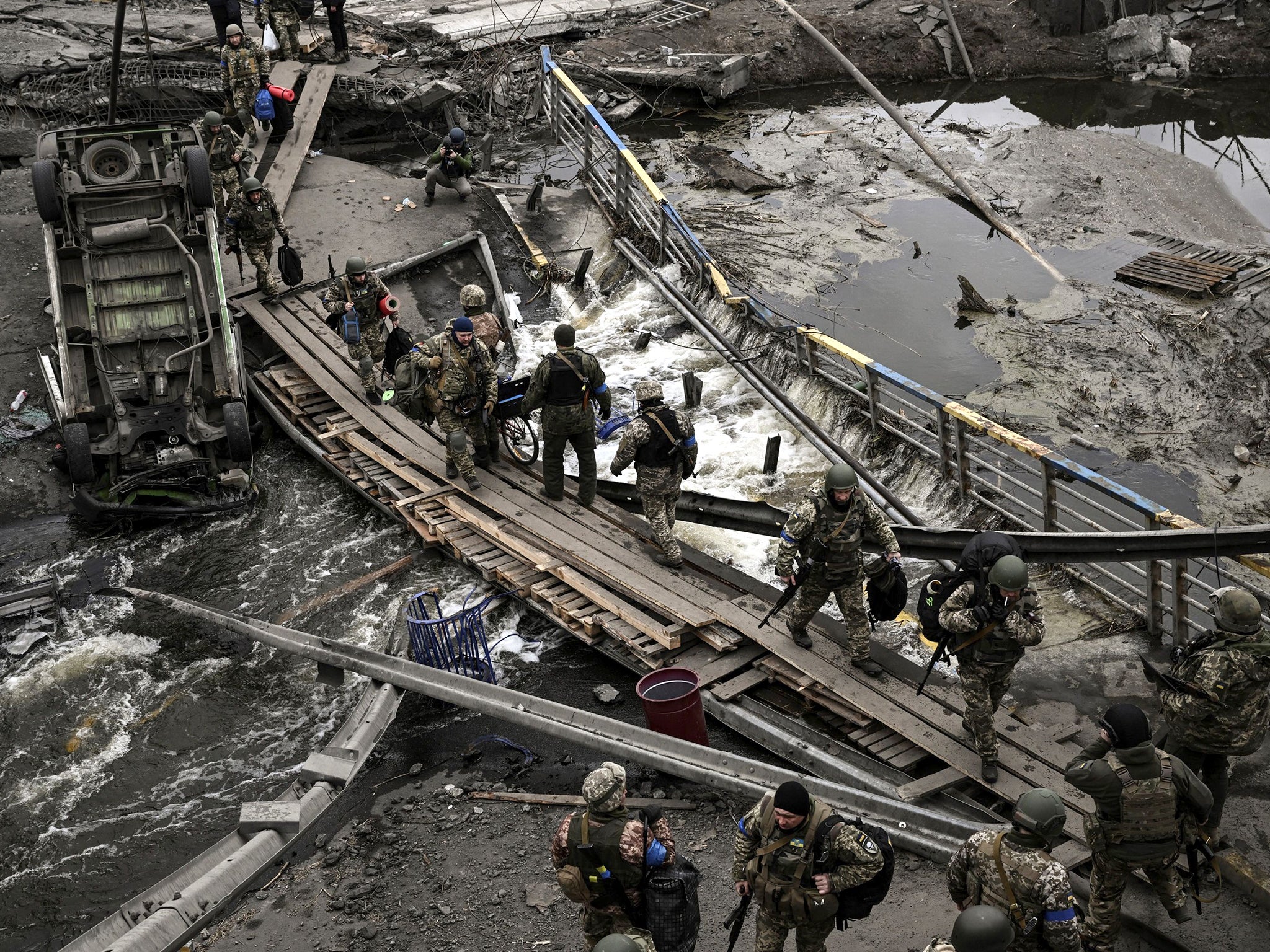
Your support helps us to tell the story
From reproductive rights to climate change to Big Tech, The Independent is on the ground when the story is developing. Whether it's investigating the financials of Elon Musk's pro-Trump PAC or producing our latest documentary, 'The A Word', which shines a light on the American women fighting for reproductive rights, we know how important it is to parse out the facts from the messaging.
At such a critical moment in US history, we need reporters on the ground. Your donation allows us to keep sending journalists to speak to both sides of the story.
The Independent is trusted by Americans across the entire political spectrum. And unlike many other quality news outlets, we choose not to lock Americans out of our reporting and analysis with paywalls. We believe quality journalism should be available to everyone, paid for by those who can afford it.
Your support makes all the difference.The scars of war are increasingly visible across Ukraine’s war-torn landscape.
As the Russian invasion nears a grim one-month milestone, the fighting is not only destroying people’s lives and homes but is taking its toll on Ukraine’s environment.
Photographs show earth pockmarked by shelling, vegetation left charred and the country littered with debris.
Those monitoring the destruction say air, waterways and soil are being polluted as industry and infrastructure are destroyed.
Ukraine’s government has voiced concern that Russian troops are damaging areas of conservation, and there are fears too for wildlife.
Environmentalists say fighting could disrupt an important bird migration corridor over Ukraine, and warned that animals in conflict zones were at risk of harm.
“Even though my real house is safe, I feel like I’m losing my home,” said Oksana Omelchuk, who works for Kyiv-based environmental protection group Ecoaction. “I feel anger towards this war, towards the Russian army – the war is the most stupid thing that could have happened.”
One of the largest countries in Europe, Ukraine borders the Black Sea and the Sea of Azov and boasts mountains, wet lowlands and the Dnieper River among other features. It is also home to heavy industry, peppering the landscape with dangerous hazards.
Before the conflict Omelchuk, 32, worked on adaptation to climate change and biodiversity in Ukraine but since war broke out she has been monitoring environmental damage in the northeastern region of Sumy, which has seen heavy fighting.
The persistent bombing has hit industry, causing fires which have pumped toxins into the air and caused chemicals to seep into the soil and groundwater.
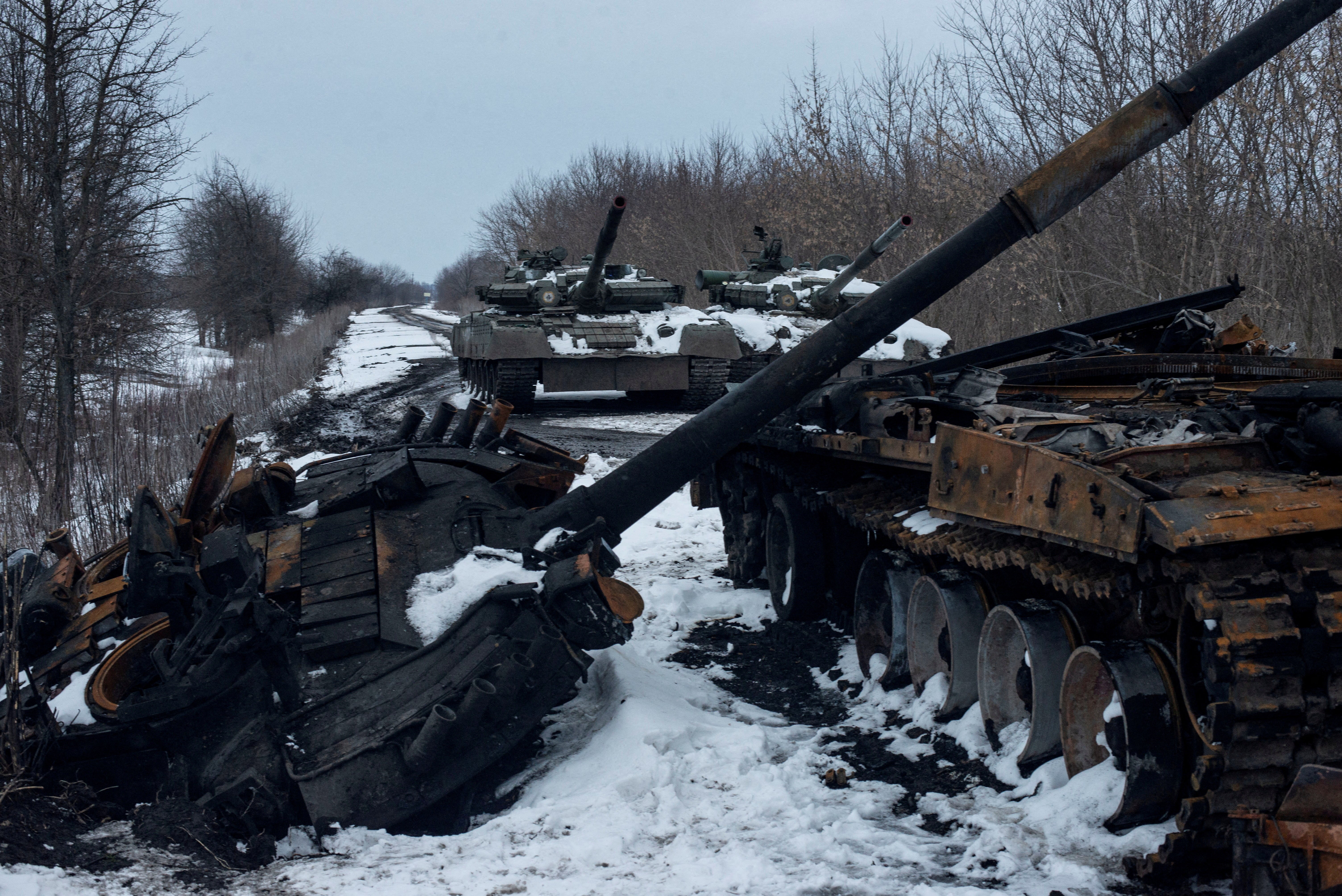
Omelchuk is not alone in her efforts. At Ecoaction, there are now around a dozen people monitoring the destruction in different regions by sifting through social media, online resources and official updates to record what is happening.
The Ukrainian government is also publishing updates on the environmental damage “inflicted by Russian aggression in Ukraine”. The latest published Tuesday, serves up a blow-by-blow of reported devastation.
The report notes that on 27 February in Vasylkiv district of the Kyiv region, a missile strike hit an oil depot sparking a fire that kicked out toxic fumes causing air pollution in residential areas.
On 14 March, it says Russian troops shelled a water supply treatment and sewage pumping station south of the city Zaporizhzhia, meaning waste water from several districts of the city now enters the Dnieper River without treatment.
Russian troops have also attacked port infrastructure along the Black Sea and Sea of Azov coasts, as well as ships at anchorages, which risks water contamination and the spread of toxins into the sea, according to the report.
Nature reserves have also been hit. The report notes Ukraine’s natural heritage is being “progressively damaged”.
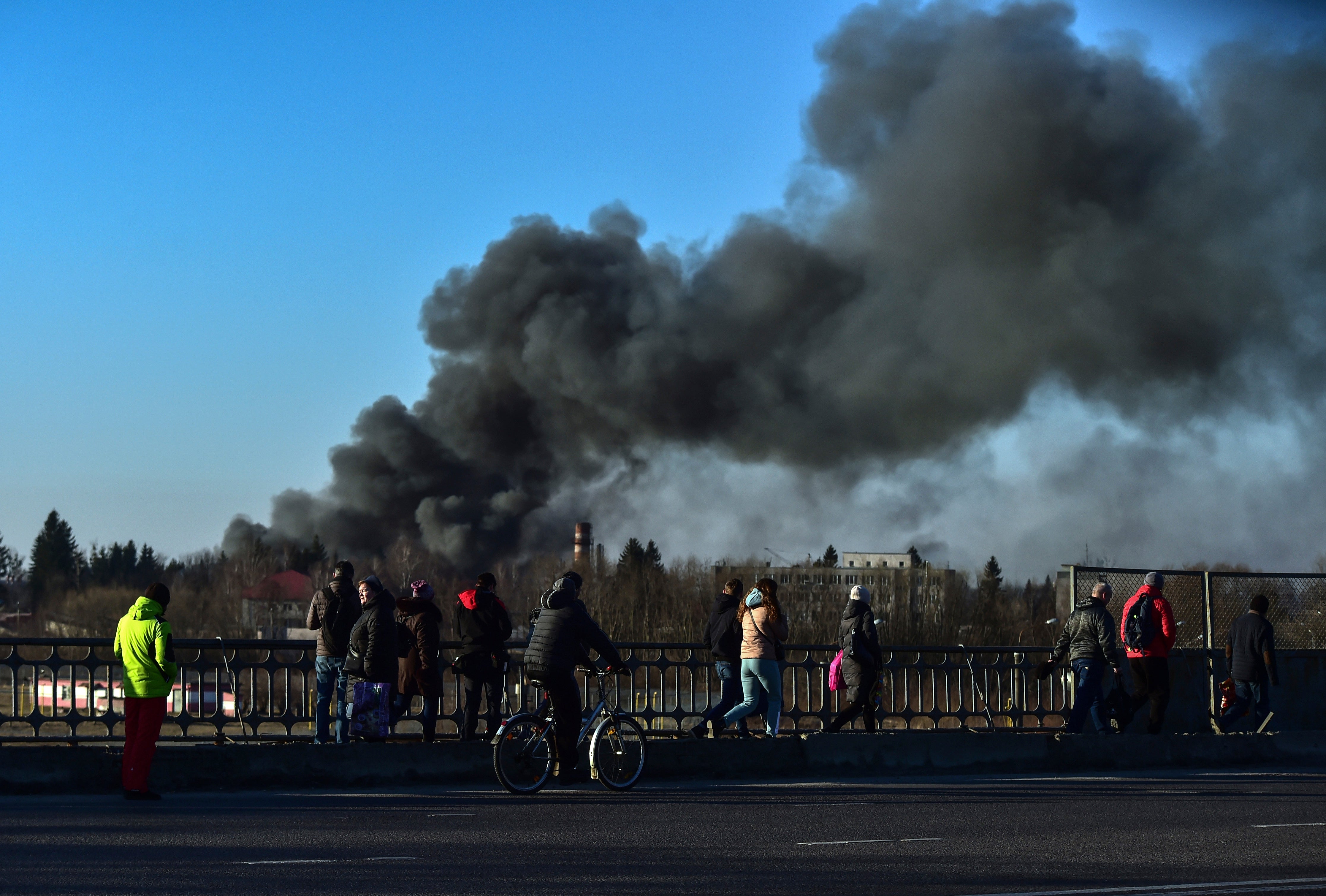
As of 14 March, it says, 14 wetlands of international importance, known as Ramsar Sites, were being used by Russian forces in Ukraine, while more than 20 nature reserves and national parks had “suffered losses”.
Some 200 “territories” in the Emerald Network, an ecological network made up of areas of special conservation interest, are under threat of destruction, while shelling, bombing and the movement of military equipment have caused forest fires.
“The Russian occupation forces did not have and do not show any respect for wild nature,” the report says.
Before the war, at-risk habitats in Ukraine included dunes, pine, cypress, juniper and yew forests, while the wolf, great bustard and the Crimean orchid were listed as examples of the country’s precious diversity, according to the Council of Europe.
Iryna Stavchuk, deputy minister of environmental protection and natural resources of Ukraine for European integration, said the country was doing what it could to monitor the destruction, while prioritising people’s lives and the defence of Ukraine.
“They’re destroying the whole country,” she said of Russia. “They want to destroy the spirit, they want to destroy the nation.”
“They want to destroy us fully, but they will not be able to.”
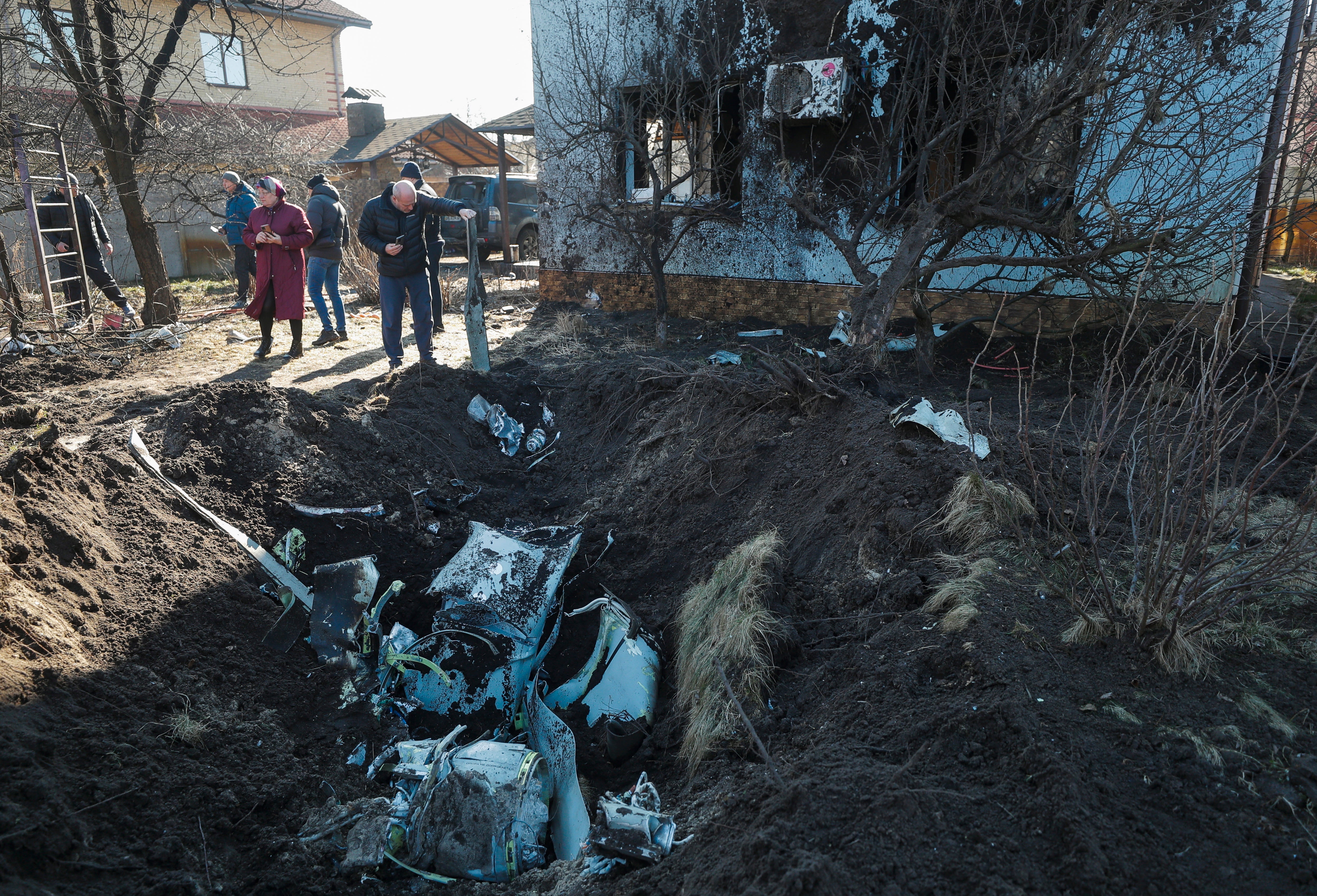
In the Moscow-backed rebel regions in eastern Ukraine, where Ukrainian forces have been fighting a nearly eight-year conflict with Russian-backed separatists, Ukraine’s government has said forests are being cut down and coal illegally mined.
“Chaotic extraction is being carried out, natural ecosystems are being destroyed and the environment is being polluted,” the report says. “This is an ecocide in its most brutal form.”
The Independent has not verified the government’s allegations and has contacted the Russian embassy in London for comment.
Despite the efforts of activists and Ukrainian officials to monitor the destruction, the full extent of the damage is not yet known, nor is how long it will take to rebuild and restore the country’s natural habitats. Much will depend on the length of the war, and as days tick by activists are increasingly concerned.
As an industrial country, there was already great pressure on the country’s ecosystems and on nature and war has only exacerbated this, according to Olexiy Angurets, co-founder of the Dnipro State Environmental Monitoring Centre in central Ukraine.
But when the war eventually grinds to a halt, he hopes Ukraine will be rebuilt in a greener, more sustainable way.
“We need to change totally our economic approach,” he said. “We should make less of heavy industry which damages nature and develop a more green economy, develop more tourism, develop a more eco-friendly economic way.”
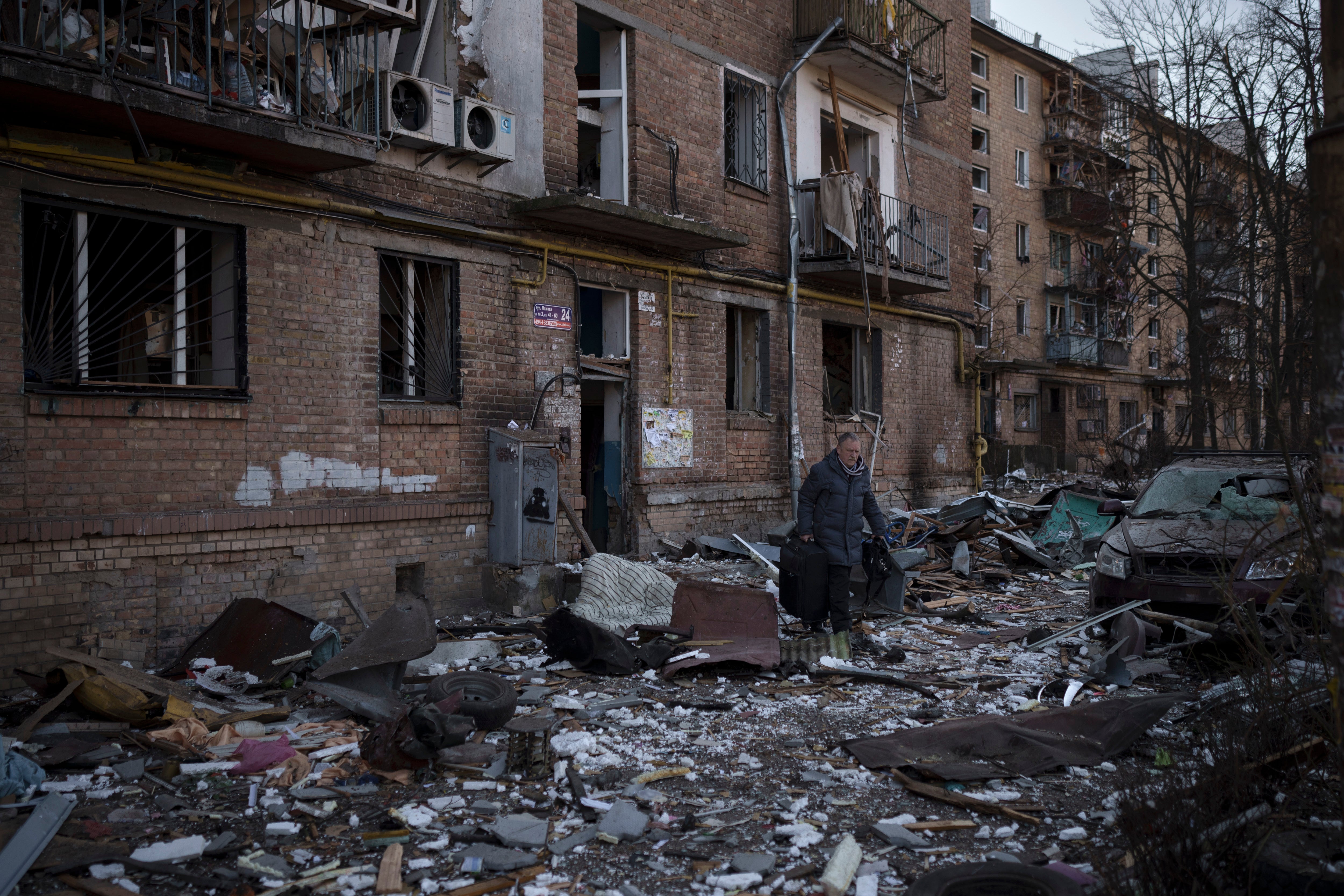
Stavchuk, 40, said she was concerned about what the war will mean for Ukraine’s climate ambitions. Last year, the country approved an ambitious NDC (nationally determined contribution) committing to reduce emissions by 65 per cent relative to 1990 levels.
Stavchuk says she is frustrated about the huge amounts of concrete and metal that will now be needed to rebuild Ukraine, amounting to additional planet-heating greenhouse gas emissions.
At the same time, because of the instability, many more countries are likely to increase investments in defence, further contributing to emissions and using up resources that could have been directed to combating the climate crisis, she said.
“It breaks my heart,” she said.
While Stavchuk is aware of the challenge that will face her country when attempting to rebuild, she says Ukraine will continue to pursue environmental reforms.
In the meantime, she called on Europe to end its dependency on fossil fuels, increase energy efficiency and renewable energy to ensure that what has happened to Ukraine can never happen again.
“The dependence on Russian fossil fuel created so much trouble,” she said. “We will do all [that is] possible to aim for the recovery to be green.”
Join our commenting forum
Join thought-provoking conversations, follow other Independent readers and see their replies
Comments